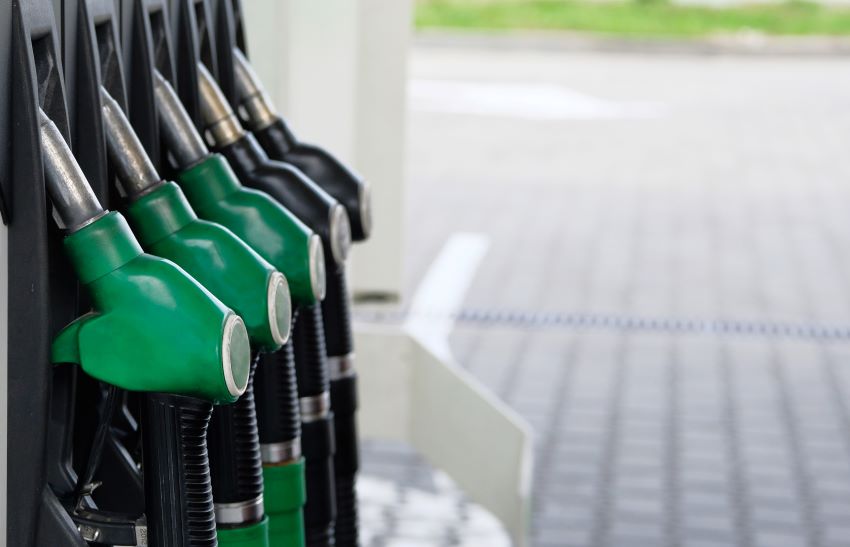There is good reason why Barbadians are nervous about the conflict in Ukraine and the accompanying increases in fuel prices on the island.
With the conflict into its third week, its impact is beginning to be felt around the world, and we in Barbados were already burdened by prohibitive energy prices. For months, the Ministry of Energy hovered the retail price of gas at $3.99, not prepared to cross the $4.00 mark. Many believed $4.00 per litre was a psychological mark that indicated a “crisis situation”.
However, having been primed by local and international media that global energy prices would jump because of Russia’s invasion of Ukraine in Putin’s audacious power grab, Barbadians have resigned themselves to the inevitable.
Today, we are paying $4.13 per litre, an increase of 14 cents, while those drivers of diesel-powered vehicles pay $3.46 per litre, an increase of 17 cents. Homeowners are also grappling with increases in liquified petroleum gas.
What is particularly troubling about the current conflict, is the uncertainty and insecurity it is creating, not just for citizens of Europe, but across the globe.
Vladimir Putin appears to be a man who is angry, unpredictable and horrifyingly, has his finger on the nuclear button in Russia, and he menacingly threatens to unleash the unthinkable on humanity.
Each day, we hope that somehow good sense prevails over evil, and Putin will choose a negotiated end to the war, rather than an all-out battle that is likely to entangle the rest of Europe and the United States.
With the global financial pressure and ostracism of the Russian Federation, we hope Putin will have a “come to Jesus moment” which forces him to consider an alternative to bloodshed.
We cannot imagine how a war in Europe will unfold, and for how long it will extend. Frankly, after two years of a global pandemic, and all that accompanied it, the thought of a World War is just too much to fathom.
The first phase of impact on us in Barbados is at the gas pumps. However, we know that Russia has the capability to disrupt major shipping channels, and spook global trade.
Minister of Energy Mr Kerrie Symmonds told local media: “The question that has to be on the top of our minds and our lips every day is, what can we do as a community to conserve the amount of petroleum products that we consume? How can we better structure our daily activity so that energy consumption is at the centrepiece of Barbados’ commercial and national agenda?”
Of course, citizens will be pressuring Government to reduce the levies it currently imposes on various energy products.
In defence of the administration, Symmonds stressed: “We have to be intervening in a manner that balances the predetermined requirements with respect to protecting the industries we have in the country. We have to bear in mind the commitments we have made already to the International Monetary Fund. We also have to bear in mind that during the pandemic, there has been substantial haemorrhaging to the public revenues. So, therefore, a number of factors have to be delicately weighed in the balance.”
What the current situation demands, is an urgent revisit of Barbados’ National Energy Policy. For despite our grand plans to become “carbon neutral” by 2030, we are still a long way off that target with less than seven years to go to reach mission accomplished.
The Energy Plan which outlines our national desire to wean the country off depleting and harmful fossil fuels and onto renewal, sustainable, green energy sources.
The policy, which was first prepared by the Energy Policy Committee of the Ministry of Energy and the Environment in 2006, and presented to Parliament in 2007, has been refined over the years.
When the policy was first drafted, approximately 90 per cent of our oil needs were imported, and ten per cent produced domestically. At the time $950 million worth of fuel was imported annually.
Alarmingly, a report by the UN Economic Commission for Latin America and the Caribbean, showed that despite our efforts and policy positions, between 2000 and 2017, there was a reduction in the use of combustible renewables and waste and natural gas. The report noted, however, that the introduction of a photo-voltaic farm in 2016 by Barbados Light & Power started to have an impact on the national energy supply and was expected to continue to grow.
The fact remains that we should have been much further along in our design to utilise more alternative energy. We knew that at some point, oil prices were going to rise again, and we would find ourselves on this path once more.
It has been several years that various administrations have been asked to revise the taxes and duties on electric and hybrid vehicles, to no avail. Calls have also been made for policies to make photovoltaic systems and batteries more affordable.
With BL&P’s application for a rate increase now before the Fair Trading Commission, it will be most interesting to see how Government approaches its entire energy policy.




